Original image by Bence Szemerey
As the years go by and Hollywood becomes more and more bereft of ideas, filmmakers are increasingly turning to the literary world for inspiration. This is not a new phenomenon of course: anybody reading this column can probably remember jumping into a conversation about the latest blockbuster by looking down your horn-rimmed glasses and intoning, ever so smugly: “…but the book was way better!”
True, Hollywood has ruined countless stories. But what about the times they got it right, or in some, extremely rare cases, even improved upon the original source material? Which brings us to: The Top 10 Book to Movie Adaptations That Were Actually Good.
(In no particular order:)
![]() 1. "Jurassic Park" by Michael Crichton
1. "Jurassic Park" by Michael Crichton
adaptation by Steven Spielberg
Ok, so it’s not exactly the apex of literary achievement, but Michael Crichton (RIP) did manage to write a book that made it semi-ok for a grown man to read about dinosaurs coming back to life without being embarrassed. In typical Crichton fashion, the novel is dense and jammed with background information, as well as summarized research for context. Spielberg’s adaptation manages to cut out most of the scientific jargon while still telling an intelligent story, and also “Hollywooded up” certain parts of the plot in a way that didn’t seem ridiculous or designed to draw in idiots off the street. Unfortunately, Crichton’s follow-up, The Lost World, didn’t receive the same treatment, but the less said about that film, the better.
Get Jurassic Park at Bookshop or Amazon
![]() 2. "Fight Club" by Chuck Palahniuk
2. "Fight Club" by Chuck Palahniuk
adaptation by David Fincher
I feel like there should be a statute of limitations on spoilers, and both the book and film iterations of Fight Club should be subject to it. That being said, SPOILER ALERT: Tyler Durden and “the narrator” are the same person. Telling this kind of story visually without coming off hokey or obvious is an achievement in and of itself, but Fincher’s gritty visual style perfectly captures the tone and mood of Palahniuk’s novel. The ending to the film stops a chapter short of the end of the novel, but in my opinion works much better on the screen. The mark of a great adaptation is one that knows what to change and what to leave alone, and Fight Club does both right.
Get Fight Club at Bookshop or Amazon
![]() 3. "One Flew Over the Cuckoo’s Nest" by Ken Kesey
3. "One Flew Over the Cuckoo’s Nest" by Ken Kesey
adaptation by Milos Forman
Let’s be clear: I love Ken Kesey’s novel; it’s in my top 10 for sure. However, Milos Forman’s adaptation steals the book's thunder for two reasons. First, it dispenses with the narration from “Chief,” which would have been difficult to pull off in a film at any point in time, much less 1975. Secondly, the addition of Jack Nicholson, in perhaps the greatest role of his long career, as R. Patrick McMurphy brings a life and joy to the character that outdoes even the best imagination. Both the book and the film are about the triumph of the human spirit over conformity (and so much more), but the film makes Kesey’s dialogue hit in a way that’s hard to compete with.
Get One Flew Over the Cuckoo's Nest at Bookshop or Amazon
![]() 4. "Trainspotting" by Irvine Welsh
4. "Trainspotting" by Irvine Welsh
adaptation by Danny Boyle
Trainspotting is an adaptation that would never get greenlit today. A hard, unflinching tale about a bunch of asshole heroin addicts who want to pull off one last score? Oh, by the way: about 50% of the novel is written phonetically in an almost indecipherable Scottish brogue. When I opened the book and read the first sentences: "The sweat wis lashing oafay Sick Boy; he wis trembling. Ah wis jist sitting thair, focusing oan the telly, tryin no tae notice the cunt. He wis bringing me doon." I knew this would not be an easy airplane-trip of a read. Who else but Danny Boyle (who went on to make such feel-good movies as Millions and Slumdog Millionaire) could have convinced anybody that this kind of film could work, and then prove it? The film condenses the novel by cutting or heavily editing several characters’ tales and keeping the main perspective on Mark Renton, played doddering and loveable by a young and scrawny Ewan McGregor. While the film is not without its problems (I think the ending is a little too upbeat and sort of dampens the spirit of the novel), this adaptation once again cut the fat and kept the meat (even the indecipherable Scottish brogue!).
Get Trainspotting at Bookshop or Amazon
![]() 5. "American Psycho" by Bret Easton Ellis
5. "American Psycho" by Bret Easton Ellis
adaptation by Mary Harron
This one is a little weird. I have to admit that I’m not a huge fan of Ellis’ most popular novel (though I haven’t read it in years). It’s an interesting concept and has an engaging narrative, but the violence is so over-the-top it approaches cartoonish for me and undermines what (I think) is supposed to be a serious story. The strength of Harron’s adaptation lies in her willingness to mine the source material and then transplant the good bits into a film that is totally different in tone and stands on its own merits. It’s been said before that Harron’s film feels more like a dark comedy, and I completely agree. A recent re-watch had me laughing out loud. Now if only we could do something about that remake…
Get American Psycho at Bookshop or Amazon
![]() 6. "The Dark Knight Returns" by Frank Miller
6. "The Dark Knight Returns" by Frank Miller
adaptation by Christopher Nolan
Ok, so this one is technically a “graphic” novel, but I’m a believer in giving credit where credit is due. Batman, one of the three most beloved and enduring comic book franchises in history, has been adapted for the screen many times by many different directors. They’ve ranged from accidentally funny (the Adam West iterations) to good-but-flawed (Burton) to downright awful (Joel Schumacher’s Batman and Robin). Only Christopher Nolan can say that he’s truly captured the spirit and tone of the Caped Crusader (at least the version everybody seems to like the most), and managed to do it without hyper-stylizing the crap out of it…because this is based on a COMIC BOOK after all. It’s not controversial to say that The Dark Knight might be the best comic book adaptation of all time, and the unfortunately named Dark Knight Rises (why didn’t they just go with The Dark Knight Returns?) could be even better.
Get The Dark Knight Returns at Bookshop or Amazon
![]() 7. "The Shining" by Stephen King
7. "The Shining" by Stephen King
adaptation by Stanley Kubrick
This might get me in trouble with King fans, and even King himself, who has been very vocal about how much he hates the Kubrick film (to the point that he directed his own version, which was horrible by all accounts). While it’s true that Kubrick took liberties with the story, the film stands alone on its own merits. Kubrick’s (at the time innovative) long Steadicam shots are beautiful and brooding, and perfectly capture the tone and mood of King’s cabin-fever tale, even if the script doesn’t touch too closely on the history of the Overlook and glosses over whether the hotel itself is actually evil, or if Jack Torrance is just a psychopath waiting to blow. Hollywood take note: no remakes of this one. Please.
Get The Shining at Bookshop or Amazon
![]() 8. "Bringing out the Dead" by Joe Connelly
8. "Bringing out the Dead" by Joe Connelly
adaptation by Martin Scorsese
An often overlooked book and film, Bringing Out the Dead is a sweaty, bleary-eyed tale of insomnia that takes place in a seedy urban underbelly that gets written about a lot but I still can’t get enough of. Connelly, who himself worked as a graveyard shift paramedic in Hell’s Kitchen for several years, hit a solid home run with his first novel, and there was no better filmmaker to bring his vision to the screen than Marty Scorsese. One of the great things about Bringing Out the Dead is its strong sense of location, one that isn’t often explored in the big Manhattan movies of note. The action takes place almost entirely at night, in the wee hours of the morning, up close and personal with the people you hear screaming down the block when you’re trying to get some sleep before work. Scorsese, a lover of all things New York, stays true to these feelings and presents the work as a bizarre fever dream that seems to slowly unravel as it concludes. The film received lukewarm reception upon its release, but both incarnations of Connelly’s story are worth checking out.
Get Bringing Out the Dead at Bookshop or Amazon
![]() 9. "Memento Mori" by Jonathan Nolan
9. "Memento Mori" by Jonathan Nolan
adaptation by Christopher Nolan (as Memento)
In order to balance out the Nolan-love evident in the Dark Knight entry, it should be noted that the director has often been criticized as “cold” and “emotionless”. After reading the short story Nolan’s breakout film Memento was based on, I’m forced to come to two conclusions: one, that “coldness” may be a direct influence from Christopher’s longtime collaborator/brother Jonathan, and two, it works a lot better on the screen than it does on the page. While Memento Mori and Memento are fairly different stories, the fundamentals (amnesia, revenge, purpose) are still there. However the short story takes the clinical detachment to a whole new level, and winds up feeling hollow and boring. When coupled with the stark photography of Wally Pfister and the reverse chronology of the script, Memento’s cold detachment works.
Get Memento at Amazon
![]() 10. The Godfather by Mario Puzo
10. The Godfather by Mario Puzo
adaptation by Francis Ford Coppola
There’s not much that needs to be said about the 1972 film adaptation of The Godfather: it stands in a class all its own. Mario Puzo’s 1968 novel, while entertaining, doesn’t contain any of the gravity or sweeping epic history that the three films tap into. Compared to the script for The Godfather Part I (which, it should be noted, Puzo worked on), the novel reads like a pulpy supermarket paperback: something you would read on a plane to pass the time. It gets the job done, and it’s entertaining, but there’s not much else there. The fact that Puzo went on to crank out a lackluster sequel (The Sicilian) didn’t help cement his reputation in the literary world, while Coppola, who hasn’t made anything decent in years, is still lauded as one of the greatest directors of all time. Thems the breaks, I guess.
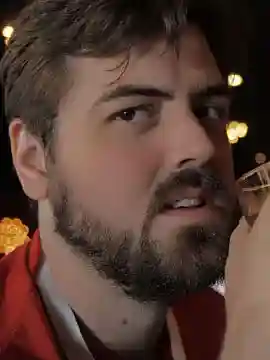
About the author
John is a copy editor and contributing writer at LitReactor, and also does work for TwitchFilm.com. He holds a film degree from the University of Texas at Austin, and is currently hard at work on several as-yet unnamed projects.
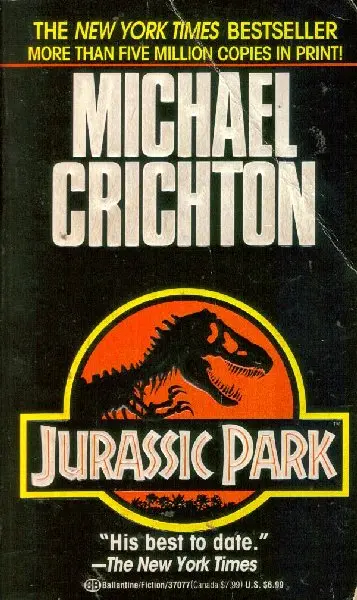 1. "Jurassic Park" by Michael Crichton
1. "Jurassic Park" by Michael Crichton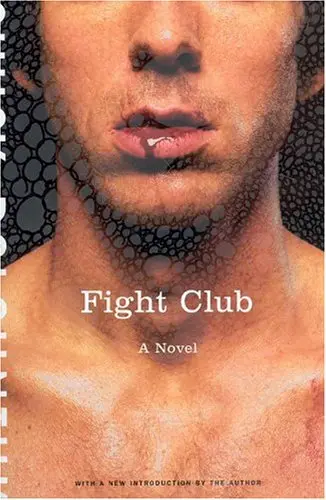 2. "Fight Club" by Chuck Palahniuk
2. "Fight Club" by Chuck Palahniuk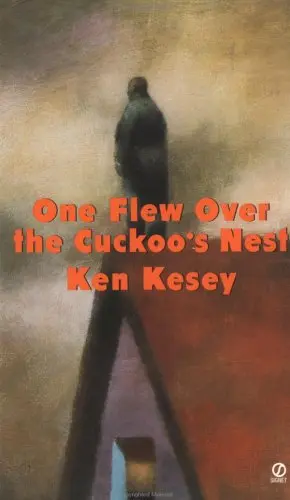 3. "One Flew Over the Cuckoo’s Nest" by Ken Kesey
3. "One Flew Over the Cuckoo’s Nest" by Ken Kesey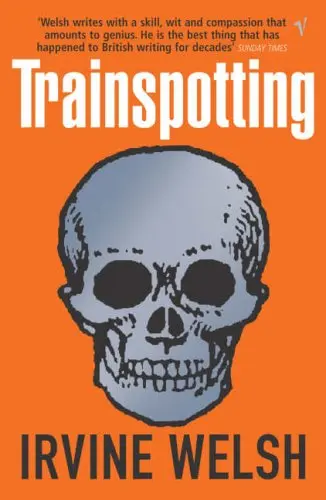 4. "Trainspotting" by Irvine Welsh
4. "Trainspotting" by Irvine Welsh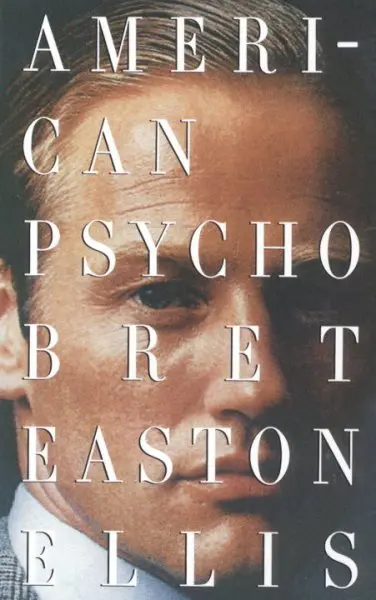 5. "American Psycho" by Bret Easton Ellis
5. "American Psycho" by Bret Easton Ellis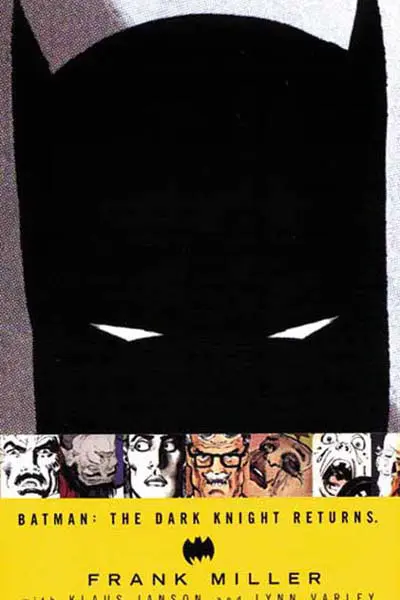 6. "The Dark Knight Returns" by Frank Miller
6. "The Dark Knight Returns" by Frank Miller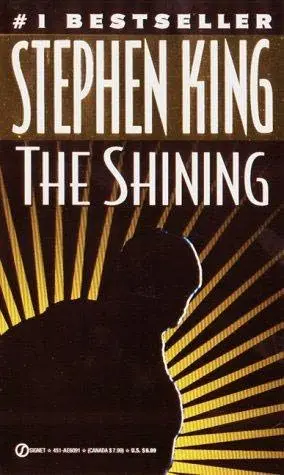 7. "The Shining" by Stephen King
7. "The Shining" by Stephen King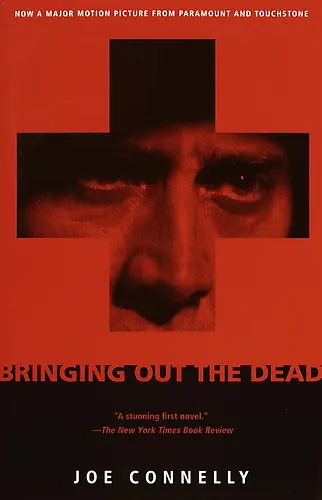 8. "Bringing out the Dead" by Joe Connelly
8. "Bringing out the Dead" by Joe Connelly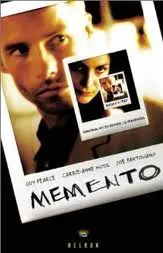 9. "Memento Mori" by Jonathan Nolan
9. "Memento Mori" by Jonathan Nolan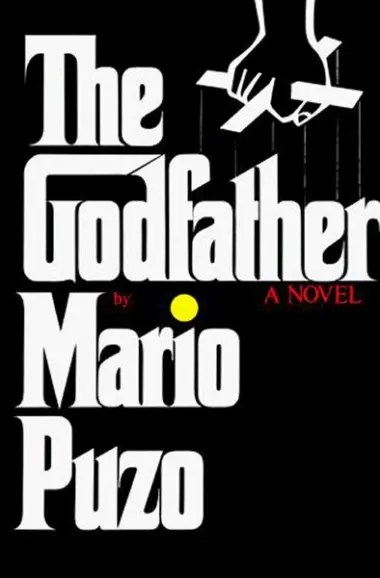 10. The Godfather by Mario Puzo
10. The Godfather by Mario Puzo







